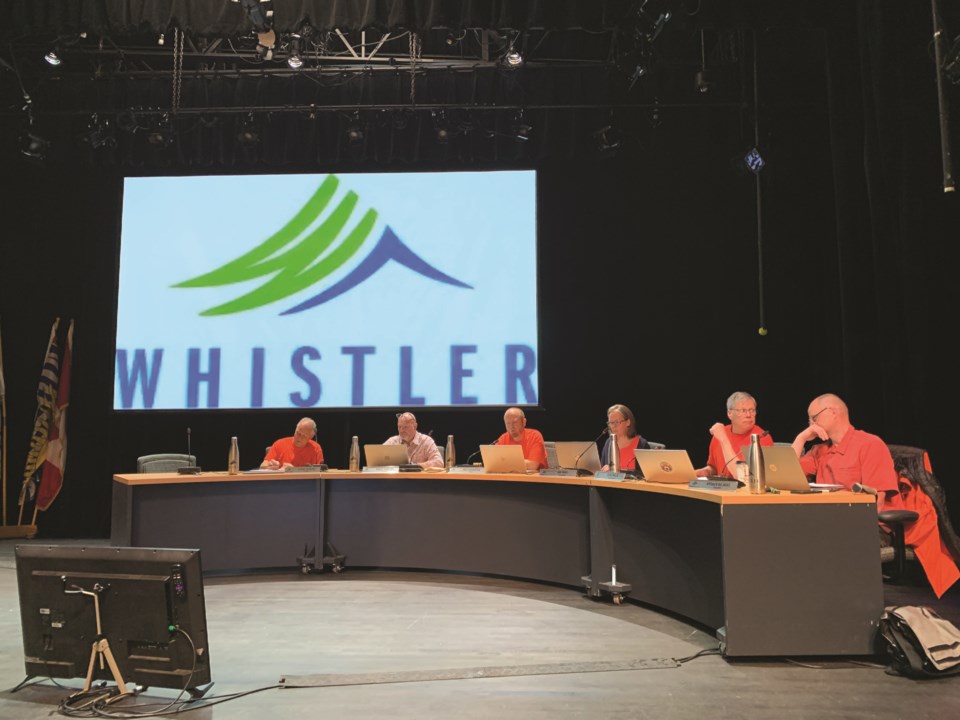The annual Statements of Financial Information report (SOFI) received by Whistler's mayor and council on June 21 shows a municipality bouncing back from COVID-19.
The SOFI report is a regulatory requirement for all British Columbia municipalities and must be submitted by June 30 each year to the Ministry of Municipal Affairs. The purpose of the SOFI is to report the financial statements and disbursements for employee remuneration, as well as goods and services.
The report shows the top earners at municipal hall who brought in more than $75,000 in total remuneration. In 2021, 156 employees made the Resort Municipality of Whistler (RMOW) list of top earners, up from 128 in 2020, a 22-per-cent increase that was primarily due to a smaller workforce in the first year of the pandemic.
Of those 156 employees, only one person made more than $200,000 in 2021: CAO Virginia Cullen, whose total remuneration (which, for all employees on the SOFI list, includes things like employee contributions to the Canada Pension Plan, employment insurance and health benefits) was $231,834.
Eight people made more than $150,000, including: GM of infrastructure services James Hallisey ($187,960); GM of resort experience Jessie Gresley-Jones ($186,896); GM of corporate and community services Ted Battiston ($183,457); director of human resources Denise Wood ($175,901); director of planning Mike Kirkegaard ($168,205); Fire Chief John McKearney ($167,939); Deputy Fire Chief Chris Nelson ($151,679); and Whistler Housing Authority GM Marla Zucht ($150,834).
Remuneration for the RMOW’s top 156 employees totalled $16,515,284, more than half of the $30,949,337 the municipality spent on remuneration in total in 2021.
The remaining $14,434,053 was spent on employees earning less than $75,000.
Employee expenses were up in 2021, from $254,727 in 2020 to $338,140 in 2021, a difference of $83,000. The highest expenses came from fire inspector Caine Tsujimura, who expensed $7,005; IT manager Phil Cartwright, who expensed $6,139; and purchasing agent Kevin Murray, who expensed $5,700.
Staff expenses include costs such as mileage to meetings, event registration and professional accreditation. "Essentially, they are expenditures required for staff to perform their job function, and are not for personal benefit," the RMOW communications department said in an email.
The rise in IT expenses is due in part to the April 2021 cyber attack that crippled the RMOW’s online infrastructure.
“We had the April 2021 cybersecurity incident, and so that does make 2021 look a bit different. There would have been some increased overtime in the IT department to manage that,” said Cullen in a media briefing on June 20.
While wages make up a substantial chunk of the municipal budget, provisions of goods and services were by far the most significant expense for the municipality. The RMOW paid $80,253,740 for goods and services in 2021—a $10-million increase from the $70,051,002 reported in 2020. Construction companies made up the vast majority of payments.
The largest payments in this category were to BC Transit ($5,098,037), followed by Coastal Mountain Excavations ($4,927,509), Corona Excavations ($3,704,682), Receiver General ($3,314,999—for local policing costs), GFL Environmental Inc. ($3,188,039) and Tourism Whistler ($2,512,484).
“You’ll see significant progress in the development of resident housing,” said Mayor Jack Crompton, pointing to the site work and construction underway in Cheakamus Crossing, which includes two four-storey apartment buildings with 100 employee-restricted ownership units, as well completion of the 45-unit WHA rental building at 1330 Cloudburst Drive.
“I think this [SOFI] document represents the priorities of our community and its local government.”
While expenses were up in 2021 compared to 2020, so too was revenue due to increased visitation as COVID-19 restrictions were eased, allowing more tourism.
“We had increasing demands for municipal services due to increased visitation and development in the community. So we saw an uptick in the visitation, and that’s reflected in our contractor costs and time spent,” Cullen said, noting that the increased visitation, along with growth in assessed values in the community, has also led to revenue increases.
There’s also MRDT, or hotel tax revenue, which began to increase in 2021 as visitation returned.
“Which is a good thing,” Cullen said. “We continue to be focused on reserve contributions for the maintenance and replacement of municipal infrastructure.”
Find more info at whistler.ca/budget.





